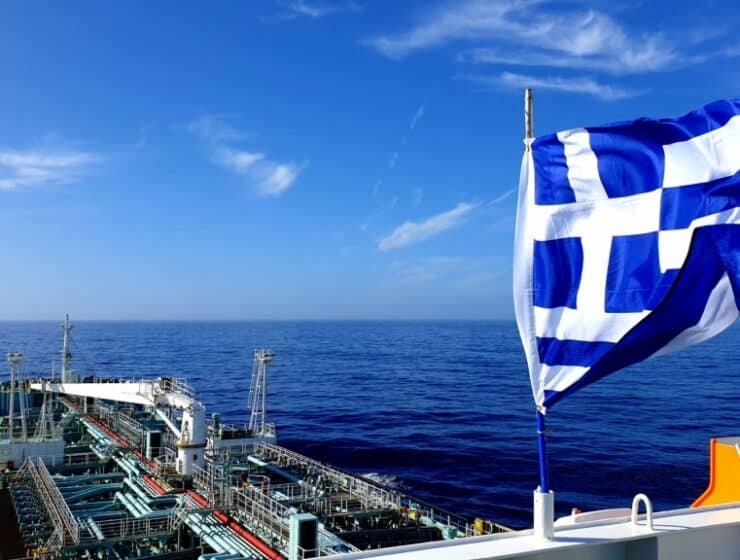
Greek shipping has retained its status as the global industry leader in the 2024-25 season.
The latest report by the Union of Greek Shipowners (UGS) has reaffirmed the vital role of the Greek fleet for the global, European and national economy and society.
“Over the past year, the shipping industry once again navigated waters fraught with economic, environmental, and geopolitical uncertainty, with rising tensions along maritime routes and ongoing threats to freedom of navigation. Yet, in this landscape, Greek
shipping honored its responsibility as a leader,” Melina Travlos, President of the UGS, says in her address in the report.
A highlight of UGS’s advocacy came during Greece’s presidency of the United Nations Security Council in New York, where the Union shone a spotlight on the real stakes of maritime security and the need to defend the freedom of navigation as a collective global responsibility and a cornerstone of peace and humanity.
Greece is the world’s largest shipowning nation
Shipping is the most extroverted sector of the Greek economy, with a total economic impact that ranges between seven and eight percent of the country’s Gross Domestic Product (GDP) each year. Inflows to the Greek economy have surpassed 150 billion euros during the past decade, during which the Greek-controlled merchant fleet has shown extensive growth, having increased its capacity by more than fourty-two percent.
Thanks to its capacity of 5,691 vessels, the Greek-owned fleet currently represents twenty percent of the global and sixty-one percent of the European Union’s fleet in deadweight tonnes, making Greece the world’s largest shipowning nation.
Greek shipping is also the largest crosstrader in the world, contributing decisively to the energy, food and supply chain security of the EU Member States, as well as of the international community. In 2024 alone, Greek vessels called at 176 countries around the globe.
A recent study by the Bank of Greece, found that Greek shipowners reinvest shipping capital in also other sectors, estimated at 1.4-1.5 billion U.S. dollars annually. In particular,
an amount equivalent to fifteen percent of the real estate transactions each year in
Greece is attributed to shipowners, while significant investments are made in the top business groups in energy, hospitality, media and sports.
The sector’s role in employment is also very prominent, as around ten percent of the total private payroll in Greece is related to shipping and it provides around 160,000 jobs, directly and indirectly.
Pioneering green transition in shipping
Shipping is one of the hardest-to-decarbonise sectors, yet Greek shipowners are also at the forefront of the sector’s green transition, with continuous and significant investments in new vessels, fitted with even more efficient and climate-friendly technologies, the report suggests.
Data show that the Greek-owned fleet is the largest alternative fuel capable fleet in the world, the largest SOx scrubber-fitted fleet, while also having higher shares of advanced
environmental equipment fitted on the vessels than the world average.
In the words of UGS President Melina Travlos, “guided by our maritime heritage and faith in our collective strength, we will continue to evolve, create, invest, and lead, both in shipping and in solidarity, remaining global pioneers on the open seas.”


